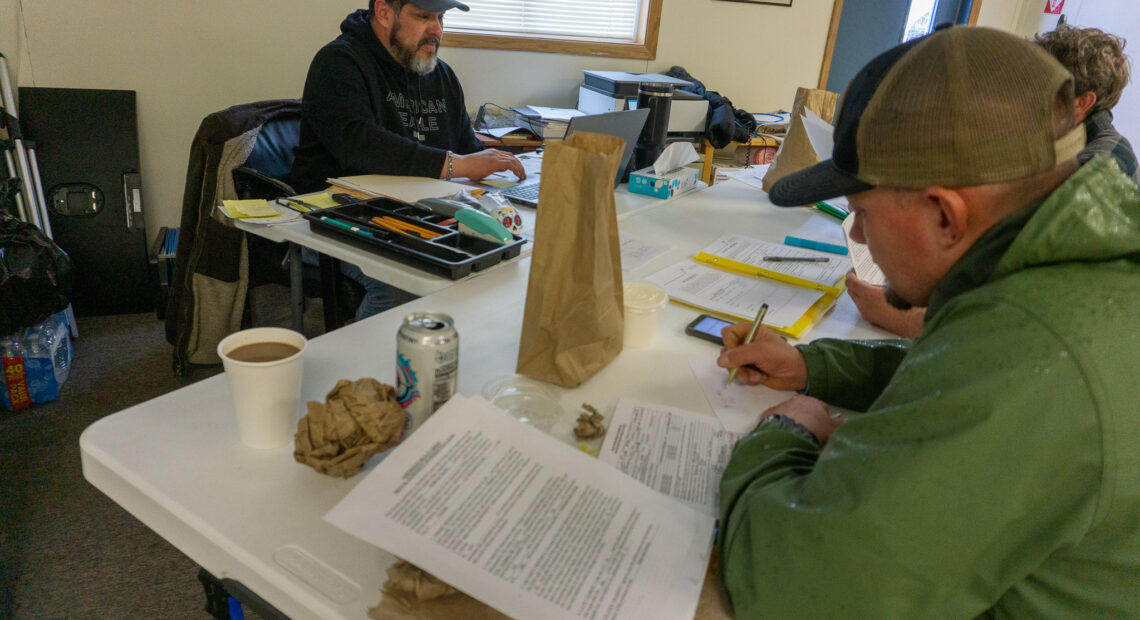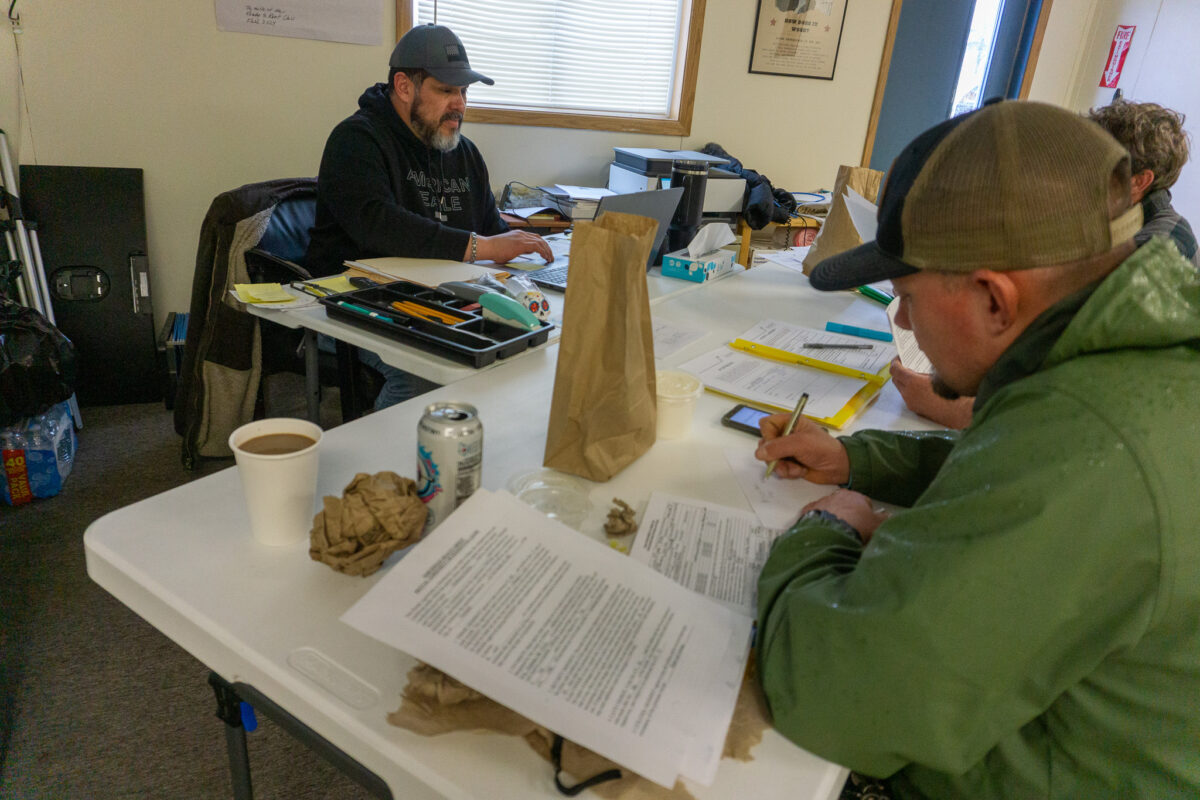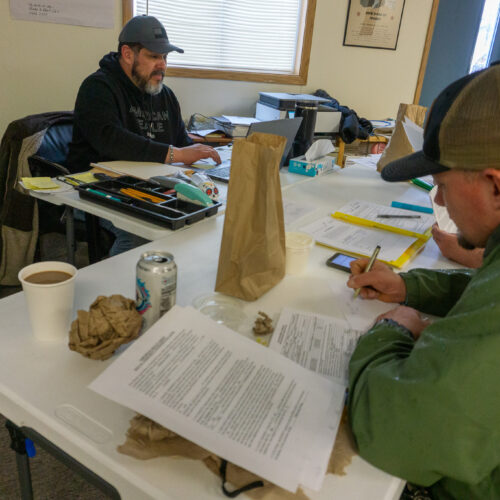
This ‘Ready to Rent’ course is preparing people to exit homelessness
Listen
(Runtime 1:02)
Read
On a rainy Wednesday, Ricky Aguilar sat at the front of a makeshift classroom at Walla Walla’s low-barrier homeless shelter.
He gave each of his students a sample rental agreement, and then cheerfully peppered them with questions: What are the terms of this lease? Can you have pets? How much will you need to pay for a background check?
Aguilar is a peer support specialist at the Walla Walla Alliance for the Homeless, a nonprofit that’s contracted by the city to run the shelter. One of Aguilar’s responsibilities is teaching this “Ready to Rent” class. He estimates about 30 people have graduated from the four previous sessions he’s taught. Most of them are now housed.
The Ready to Rent curriculum was developed in Portland in the late ’90s. According to the company’s website, more than 60,000 people have completed the course. Each session has six, three-hour lessons that cover everything from creating a budget and talking to landlords to understanding leases and following rules.
“It’s not just getting folks housed, but keeping them housed,” Aguilar said. “And not getting evicted. We don’t want to set them up for failure.”
The students in Aguilar’s course all live at the shelter. Graduating from the course is usually a requirement to move from one of its 38 huts into one of its 10 transitional units, which have electricity, heating, air conditioning, a microwave and a mini fridge.
Though Dustin McCauley is already living in transitional housing, he’s taking the Ready to Rent course for the first time. He’s been living at the shelter for almost two years and is about to leave for a job opportunity in California.
“It’s definitely informed me on renters’ rights, leases,” McCauley said. “I don’t have a rental history. I’ve never rented through any kind of company, I just kind of did the couch surfing thing.”
Aguilar said that a lack of rental history is one of the biggest barriers for his students. They also grapple with learning disabilities and low levels of literacy, which can make the coursework challenging. Credit scores are an issue, too, though Aguilar teaches students how to check and improve them.
“We have folks here that have been homeless for 18 years, all their lives, this is all they know,” Aguilar said. “They don’t have bank accounts. They’ve never checked their credit scores. They don’t even have credit scores.”
Aguilar hopes that completing this class can eventually be a signal to landlords; something that encourages them to give the graduate a chance, even if that person doesn’t have strong credit scores or a solid rental history.
“A lot of rental agencies don’t know about it, and so it doesn’t really mean anything to them,” Aguilar said. “We gotta get the word out there.”
Aguilar’s ultimate goal is finding funding that would allow his organization to “insure” new renters as a way to incentivize wary landlords. In his vision, this insurance would reimburse landlords for a certain amount of damages or expenses — up to, say, $1,500 — if something happened during the first six months they rent to one of Aguilar’s students.
Matthew Cate grew up in Walla Walla and has been homeless for a decade. Cate had been living at the shelter for about a year when Aguilar told him about the Ready to Rent program.
“ I wasn’t even looking to get housing,” Cate said. “I didn’t think that they’d even give me a glance.”
But with the support of Aguilar, Cate decided to give the course a try. He’s now taking it for the second time and is set to graduate next week.
“A lot of people that are homeless, they forget how to pay bills, they forget how to manage their money,” Cate said. “And this program just puts it all in perspective. It just fine tunes you again.”
Cate hopes the course will help him get housed — and stay housed.
“The biggest thing that I’ve learned from the course is what a manager or a property owner expects out of you,” he said. “It teaches you what you gotta do and how to be respectful to your neighbors, the management, the property owner and even yourself.”
















